7 Nights / 8 Days
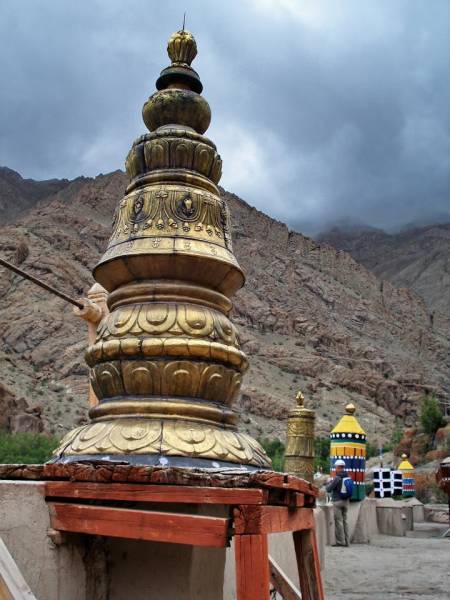
The barren beauty of Ladakh with snow capped peaks and clean azure sky have attracted the intrepid traveler. Ladakh has become a favorite haunt for trekking and mountaineering enthusiasts. The rugged terrain and the majestic mountains around, make an exotic cocktail for an adventure sport lover.
This region witnesses summer season between the months of April and September and this is the best time to visit Ladakh when temperature lies around 20 to 30 degree Celsius. But before you decide to fly away to the land of Buddhist monasteries and mountainous beauty, it is very important to understand that you need at least a week to enjoy your tour to Ladakh. Since, acclimatization it self needs at least a few days in Ladakh. Buddhism is the dominant religion in Ladakh and one can find its stamp all over in Ladakh.
Upon arrival at Leh airport, welcome and transfer you to Hotel in Leh. Rest of the day free to acclimatize to the high altitude of Ladakh. In the evening take a walk to the local bazaar in Leh. Overnight at the hotel in Leh.
Morning after breakfast, drive to Thiksey village, visit Thiksey monastery and drive to Shey Village to visit Shey Palace and Gompa. Later return to Leh for lunch (on own). In the evening visit Leh Palace, Donkey Sanctuary and Shanti Stupa for beautiful sunset view. Dinner and overnight stay at the hotel in Leh. Return to hotels for dinner and overnight stay.
THIKSEY GOMPA: 19 Kms from Leh, spectacularly sited, Thiksey is one of the largest and architecturally most impressive Gompas. There are several temples in this Gompas, containing images, stupas and wall paintings of Buddha, which are exquisite.
SHEY PALACE AND GOMPA: Situated on a hillock 15 Kms upstream from Leh, it was once the residence of the royal family. According to tradition, it was the seat of power of the pre-Tibetan kinds. A 7.5 mts high copper statue of Buddha, plated with gold and the largest of its kind, is installed here.
LEH PALACE: The Palace overlooks Leh town and is modeled on the Potala Palace in Lhasa, Tibet. The palace was built by King Sengge Namgyal in the 17th century, but was later abandoned when Dogra forces took control of Ladakh in the mid-19th century. The royal family moved to Stok Palace. Leh Palace is nine storeys high; the upper floors accommodated the royal family, the stables and store rooms were in the lower floors. The palace, a ruin, is currently being restored by the Archaeological Survey of India. The palace is open to the public and the roof provides panoramic views of Leh and the surrounding areas. The richest collection of jewellery, ornaments, Thangkas, ceremonial dresses, crowns, and centuries-old pieces of jewellery are kept here for public display. There are Chinese Thangka or sooth paintings which are more than 450 years old but still look new.
SHANTI STUPA (Japanese Peace Pagoda) : Shanti Stupa/Japanese peace pagoda is build by a Japanese religious organization headed by Head monk Nakamura with the help from the organization and local people. It is situated at a hill top in Cahngspa village providing a bird eye view of the Leh town and the surrounding mountain peaks. Architecturally it has the Japanese touch with small clean rooms on the side for meditators and the main Japanese shrine at the entrance.
THE PANGONG LAKE: This route takes the visitor past the picturesque villages of Shey and Thikse, and turns off the Indus valley by the side valley of Chemrey and Sakti. which despite its great elevation is one of the easier passes, remaining open for much of the year even in winter, apart from periods of actual snowfall. Tangse, just beyond the foot of the pass, has an ancient temple. But the main attraction of this circuit is the Pangong Lake, situated at 14,000 feet (4,267 M). A long narrow basin of inland drainage, hardly six to seven kilometers at its widest point to which foreigners are permitted, is only some seven km along the southern shore from the head of the lake, but it affords spectacular views of the mountains of the Changchenmo range to the north, their reflection shimmering in the ever-changing blues and greens of the lakes brackish water. Above Spangmik are the glacier and snow-capped peaks of the Pangong range.
After breakfast drive back to Leh taking the same route. Arrive Leh and relax at the hotel or free for individual activities. Stay overnight at the hotel in Leh.
Early morning proceed to Nubra Valley via the World Highest Motorable road (5602Mtrs) Khardungla pass. Arrive Nubra and proceed for a visit to the White Sand Dunes at Hunder. One may enjoy the camel ride (On Own). Later if time permits visit Diskit monastery and check in at Camp. Overnight at the camp in Nubra. Khardungla pass: The road journey to Nubra valley leads through Khardung La pass (The highest Motorable road in the world) 18,390 ft. around 39 Kms. Away from Leh. There are two checkpoints on the both sides of the pass. Khardong is the first village of Nubra valley at higher altitude than Deskit and other villages.
DESKIT village: Deskit is the main village of headquarter of Nubra valley, which has a small market consisting of a row of shops and about 500 years old Gompa on the hilltop. Spectacular view of the valley can be seen form the monastery.
DESKIT GOMPA: Deskit Gompa was founded by Lama Sherab Zangpo of Stod in about 1420 AD during the reign of King Dragspa. About 100 monks are residing in the Gompa, which is a branch of Thikse Monastery. The monastic festival called Gustor takes place on 20th and 21st days of the 12th month of Tibetan calendar. Hundar village: Hundar is a beautiful village to stay with lot of trees and you will really enjoy your stay at Hundar. It has a small monastery and ruined fort above the village. The walk or Camel Safari (Double Hump bacterian camels) from Hundar to Deskit, through sand dunes for two hours is wonderful (on own).
After Breakfast, proceed for Leh once again drive via Khardungla pass. Evening explore Leh bazaar for souvenir, visit Leh Jokhang or Leh Mosque by foot (no transport included for evening). Stay overnight at the hotel in Leh. Ladakh Buddhist Association in 1957 built the small Gompa known as Jokhang in the main bazaar, which is open throughout the day for visitors. The Gompa contains statue of Joyo Rinpoche (crowned Buddha).
Morning after breakfast visit Hall of Fame, Spituk Monastery and Kali Mata Temple, Magnetic Hill, Gurudwara Patthar Sahib and Confluence of Zanskar – Indus rivers. Return to Leh for lunch (on own). Dinner and overnight stay at the hotel in Leh.
LADAKH HALL OF FAME: It is a glorious museum constructed by the Indian Army. It is worth a visit for every citizen. You can see the memorabilia, eminent defense personalities with biographies, images and weapons used during the Kargil and other key strategic battles fought in Ladakh. And belongings of the enemy soldiers found at war site. All the martyr and the gallantry awards. Here’s something that you will be proud of our defense personnel who sacrificed themselves so that we could live in peace.
SPITUK GOMPA: 8Kms from Leh, it stands prominently on the top of hillock commanding a panoramic view of the Indus Valley for miles. Many icons of Buddha and fine Thankas are to be found in this 15th century Gompa. The Gompa also houses a collection of ancient masks, antique arms, and an awe-inspiring image of Mahakaal. The face of the Kali image is kept covered and is revealed only at the annual function at January every year.
MAGNETIC HILL: Defying the Law of gravity. This place is close to the Gurdwara Shri Patthar Sahib. It has been noticed that when a vehicle is parked on neutral gear on this metallic road the vehicle slides up-hill that’s the Believe it or not of Ladakh!
GURDWARA SHRI PATTHAR SAHIB: Situated 25 miles from Leh, Gurudwara Pathar Sahib stands at the place where Guru Nanak is believed to have vanquished a demon. According to legend, during his sojourn in Ladakh, Guru Nanak was attacked by a demon. The demon threw a large boulder on the guru as he sat at the base of a hill meditating. However, the rock became soft like molten wax and failed to cause any harm to the Sikh guru. The demon was in for a surprise when he found the Sikh guru unscathed. Bristling with fury, the demon tried to crush Guru Nanak by kicking the boulder with all his might. To his surprise, the demon’s foot caused a deep impression in the boulder which had turned soft. Realizing that the man in front of him was no mortal soul, the demon underwent a transformation and stopped harassing the people. The boulder with the imprints of Guru Nanak Ji and the foot of daemon still rests there. The gurudwara is maintained today by the Indian Army. It is a tradition for vehicles to stop and pay obeisance at the temple.
CONFLUENCE OF THE ZANSKAR & INDUS: On way to Sham Valley before Nimu village one can have this magnificent view of two rivers in wed-lock!
Early morning, check out from the hotel and drop at airport. Tour concludes with happy memories.
We Deals in Tour Operators Services. Read More...
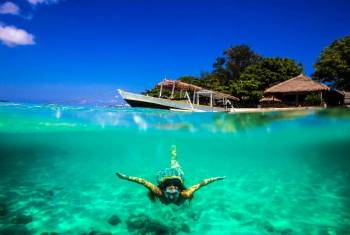 6D/5N
6D/5N
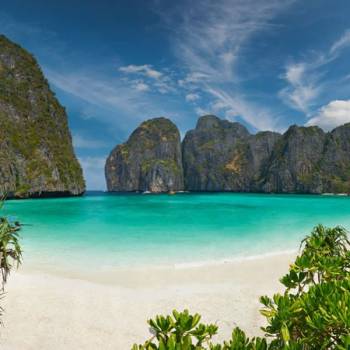 7D/6N
7D/6N
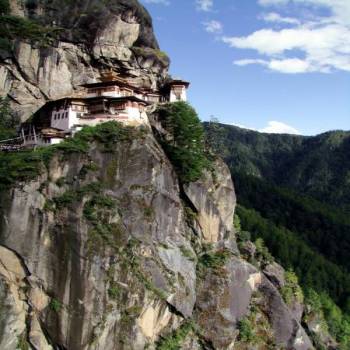 7D/6N
7D/6N
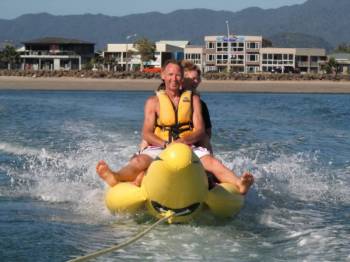 5D/4N
5D/4N
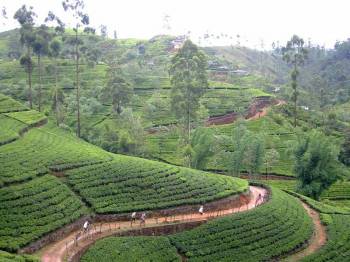 6D/5N
6D/5N
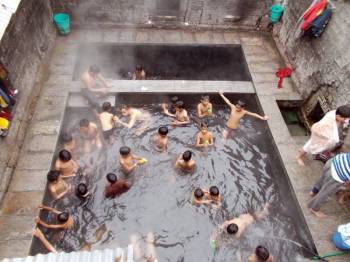 7D/6N
7D/6N
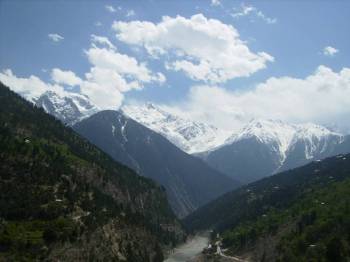 6D/5N
6D/5N
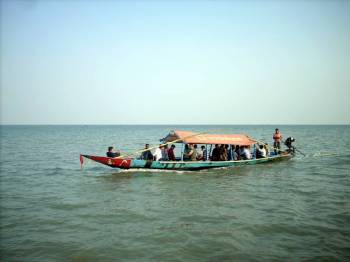 5D/4N
5D/4N
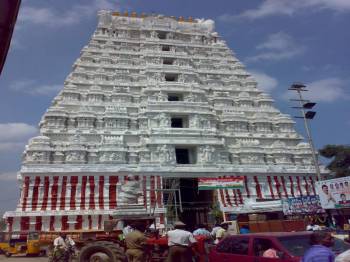 7D/6N
7D/6N
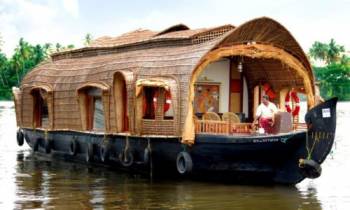 8D/7N
8D/7N
 8D/7N
8D/7N
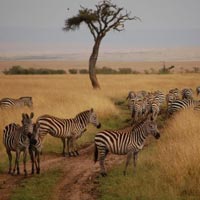 8D/7N
8D/7N
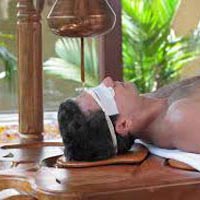 8D/7N
8D/7N
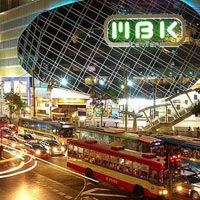 8D/7N
8D/7N
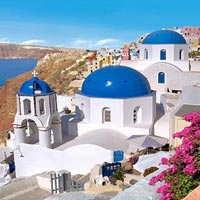 8D/7N
8D/7N
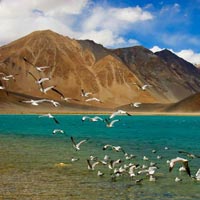 8D/7N
8D/7N
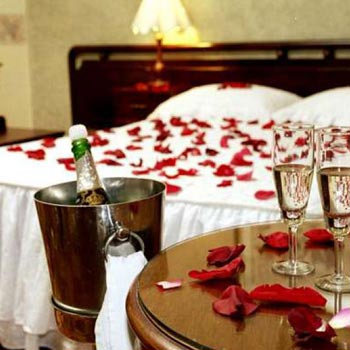 8D/7N
8D/7N
Delhi Shimla Manali Honymoon Package
New Delhi - Shimla - Manali - Chandigarh City
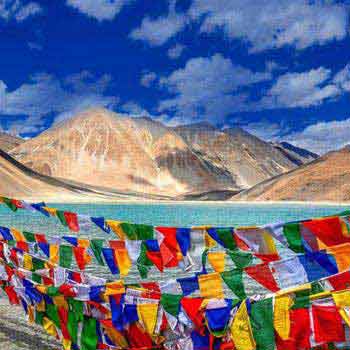 8D/7N
8D/7N
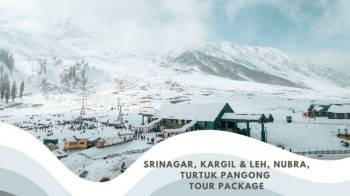 9D/8N
9D/8N
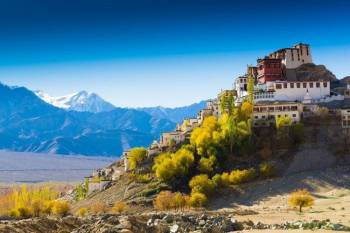 10D/9N
10D/9N
Jammu And Kashmir With Leh Ladakh Tour P..
Srinagar - Pahalgam - Leh Ladakh - Kargil - Gulmarg
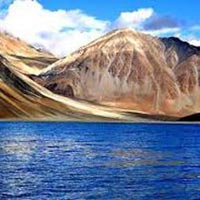 11D/10N
11D/10N
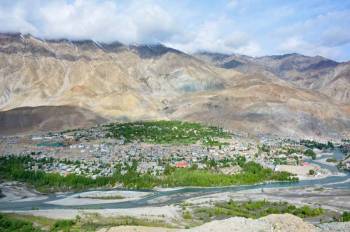 7D/6N
7D/6N
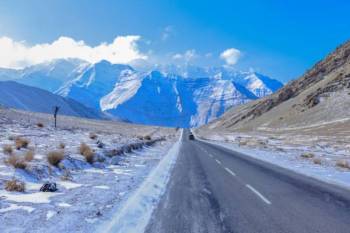 12D/11N
12D/11N
Gogiyies Ladakh - Kashmir 11 Nights - 12..
Srinagar - Pahalgam - Leh Ladakh - Kargil - Gulmarg
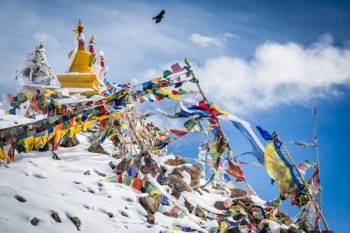 6D/5N
6D/5N
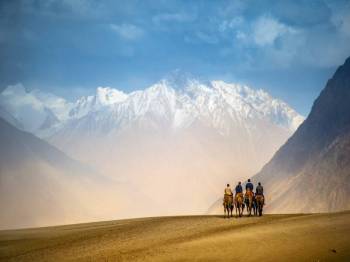 11D/10N
11D/10N
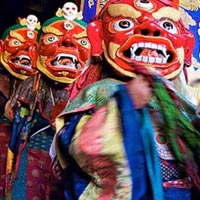 10D/9N
10D/9N
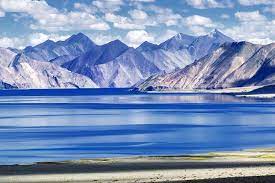 7D/6N
7D/6N